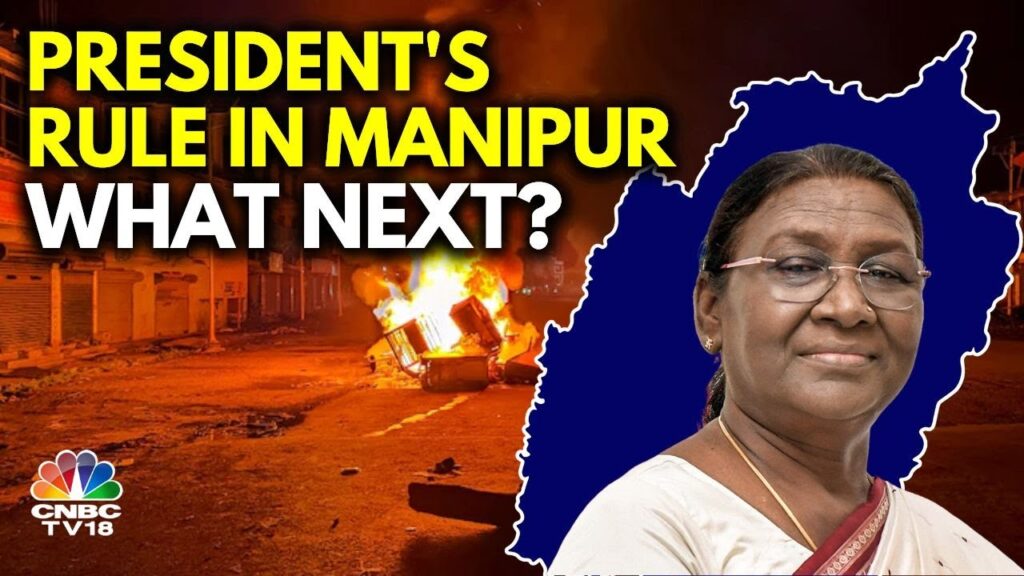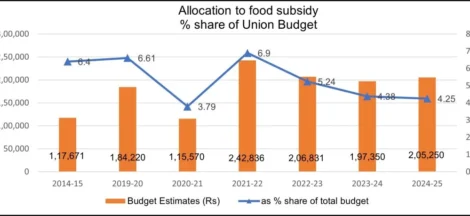By Rabindra Nath Sinha
KOLKATA: The Bharatiya Janata Party’s top leadership failed to see the writing on the wall last year when the Congress bagged both the Lok Sabha seats in Manipur, defeating BJP’s candidate for the Inner Manipur constituency and its ally Naga People’s Front’s nominee for the Outer Manipur constituency. Thereafter too, the BJP leadership remained obstinate about chief minister N Biren Singh; not recognising the growing disenchantment of party MLAs with his leadership.
Prime Minister Narendra Modi left Manipur affairs entirely to home minister Amit Shah and he himself for unstated reasons avoided visiting the strife-torn state. The tribal community, frustrated with the domination of the Meiteis in the administration, veered round to the view that a separate administrative arrangement in the format of a Union territory, was the answer to their woes and alienation.
The law and order situation remained bad; recovery of arms and ammunition looted by ultras in the aftermath of the widespread ethnic conflict that broke out on May 3, 2023 made little progress and the continuing miserable existence of over 60,000 people in relief camps have been accentuating discontent among the people. In this backdrop, the belated decision on February 13 of the Union government to bring the state under President’s rule is being seen by a cross-section of the people, Opposition political parties and civil society organisations as providing a breather.
But, political watchers and civil society activists have noted that even though the state has been brought under President’s rule, the government has made sure that Manipur affairs are not discussed in Parliament immediately. This is because the Presidential proclamation was issued on February 13, Thursday, an hour after both the Houses of Parliament were adjourned till March 10 at the conclusion of the first leg of the Budget session. Article 356 (3) of the Constitution states that the proclamation should be laid before each House of Parliament and shall cease to operate at the expiration of two months unless approved by resolutions of both the Houses of Parliament. Therefore, it is clear that in determining the time, the decision-makers have been calculative.
The second point political observers make is about the decision to keep the Assembly under suspended animation. Which means that BJP wants to renew efforts to find a successor to Biren Singh and form a ministry. Last Assembly elections were held in Manipur between end February and early March 2022 and, therefore, the next Assembly election in the usual course will be due only in the first quarter of 2027, which means two years hence. But, given the fact that the state unit of the party is a divided entity and that the legislature party includes seven Kuki community members, the chances of finding an acceptable replacement for the chief minister’s post are rather remote.
A section of political leaders IPA talked to make it clear they want the duration of President’s rule to be brief and a fresh mandate of the people sought early. But, this is easier said than done. It is another thing that BJP does not want early Assembly elections. The possibility of Biren Singh making a fresh bid to come back in reckoning for the chief minister’s post is also not ruled out because it is widely believed that the central BJP leadership still sets great store by him. In the intervening days after Biren Singh submitted his resignation on February 9, no other BJP MLA was found suitable for leadership despite several meetings spread over four days till February 12.
But, there is a consensus of opinion among political parties and civil society organisations that Governor Ajay Bhalla and chief secretary Prashant Singh, both of whom have intimate knowledge about the north-east, should be allowed reasonable time to restore peace and organise return of the people to their ‘homes’ on a priority basis. That in the prevailing situation will be the first step for a healing touch. As for restoring law and order, a major drive to recover the large number of looted sophisticated arms still in the possession of militants on the warring sides will go a long way in removing the fear psychosis that still grips large section of the common people.
Once these tasks have been accomplished, the Governor and his team should initiate steps to bring representatives of the Meiteis and Kuki-Zo community together for dialogue. Knowledgeable quarters told IPA the process should ideally begin with back-channel talks with the help of civil society organisations. In this context, they mention that the Naga community in Manipur has remained neutral. The scope for taking the help of responsible Naga leaders can be explored for starting the dialogue process. Meiteis have reiterated their demand that the state should remain intact.
The tribal community has been reiterating its demand for a separate administrative arrangement with a union territory status. Therefore, the task is just not administrative. The Union home ministry has been remitting all north-east related ticklish issues to its special advisor for north-east. This arrangement warrants a re-look, north-east watches told IPA. For a sustainable political solution in Manipur, the need first is to remove the trust deficit between the Meiteis and the Kuki-Zo community and the tribal community given greater say in administration. The continuous dominance of the Meiteis in Manipur governance has been proving counter-productive and, therefore, a greater say to the tribal community in governance may also mean the healing touch for that aggrieved segment of the population, political observers told IPA. (IPA Service)




 Who Is The Better Deal Maker – Donald Trump Or Narendra Modi?
Who Is The Better Deal Maker – Donald Trump Or Narendra Modi? 